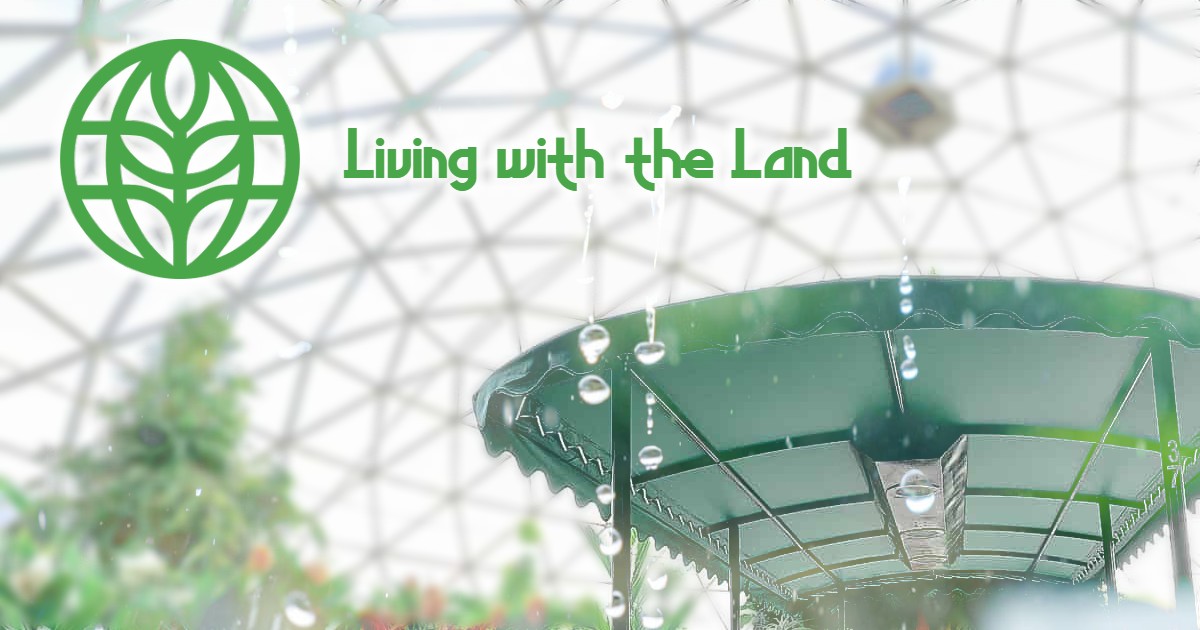
If you’ve ridden the ride at any point since it opened in 1982, you will remember the Living with the Land rainforest scene. It’s the one with the fake butterflies, the monkey noises, and a waterfall that smells like an indoor hotel pool.
It’s also the first scene were you can really spot the Garden Grill watching you from above, like the gods of Olympus. But fear not, dear riders. A teal canvas covering known as a boat canopy protects you from the scathing wrath of their unrelenting view.
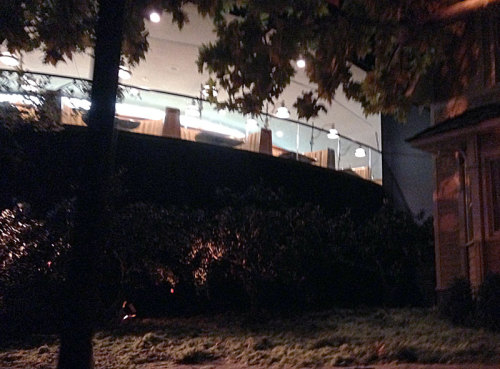
Frequent riders scoff at this notion. The canopy has a different purpose, and it has nothing to do with the nosy neighbors in the clouds, peering into every nook and cranny of your short boat-riding journey and discovering secret rooms along the way that only they can see.
Obviously, the canopy is there to block out the sun in the greenhouse section.
No, It’s Not Because of the Greenhouse Section
Yes, it is, insists the frequent rider, who has lived multiple decades on this planet, and has been riding Living with the Land every week since the Millennium Celebration. It’s because of the glaring sun in the greenhouses, which shines through the glass on hot Florida days and would otherwise roast the wee riders in the boat like bugs under a magnifying glass.
But it’s really not. Not in the least. First of all, things don’t automatically burst into flame in Florida just because you are under some glass.
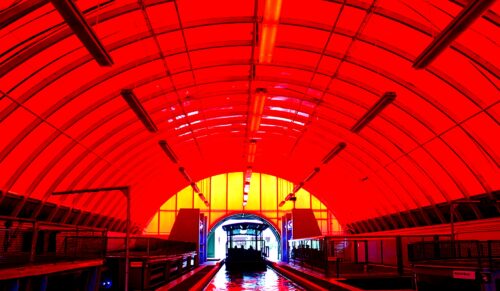
The canopies’ real purpose is to keep the riders from getting soaked in the Living with the Land rainforest.
Real Rain in the Living with the Land Rainforest
The opening biomes in Living with the Land always had elements that made them feel more authentic. The rainforest was humid. The desert was dry. The prairie scene had hundreds of tiny locust animatronics that would gently gnaw at visitors’ flesh. But visitors to the original EPCOT Center recall another effect in that rainforest room: The soft patter of rain on the boat roofs, running off in small trickles around the riders hunkered in safety on the benches beneath. Often, the boat canopy was still shedding excess water even when it entered the greenhouses. Every little bump or turn would cause a new smattering of raindrops to shake loose.
What an incredible courtesy to extend! An entire ride vehicle feature designed to protect you from a little splash in a single room on an otherwise 15-minute boat journey. As Tokyo DisneySea has proven, Disney ride vehicles are often overly concerned about the effects of rain.
Did this really happen? Or is it another example of the Disney World Mandela effect? As usual, proof comes courtesy of the vaunted Abrams book, the best theme park book ever written.
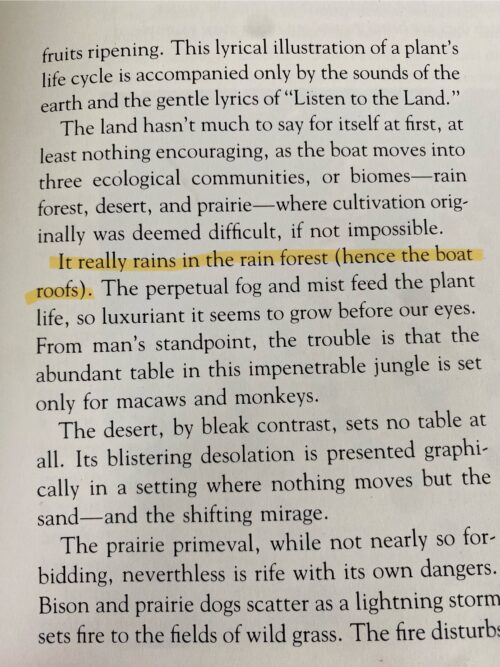
The ride today is not that different from the ride in 1982. Sure, it went by the name Listen to the Land back then, complete with an iconic EPCOT theme song and a live Cast Member in polyester blue overalls spieling as you went. But essentially, it’s the same ride. The animals, plants, and waterfalls of the Living with the Land rainforest are virtually identical to what was then called Future World and not World Nature.
Except for one thing. The rain effect.
It triggered when you entered the scene, as you pass the colossal waterfall on the right hand side . The arrival of your boat also energizes the animals, whose chatter and animation would increase as you drifted their way. As you proceeded to the next scene, the rain would die out, before resuming for the next batch of victims.
When Did the Rains Stop?
It is hard to determine when this season of drought began in the Living with the Land rainforest. Was it in 1994, when Listen to the Land and its hummable song disappeared? Or did it last all the way until the changes of 2006, when the live Cast Member narrator was removed?
Maybe, like so many other disappearing rainforest water features, the effect simply faded silently into the darkness. Either the stupid thing broke, or became too difficult to maintain, or was turned off for cheapness water conservation. It is truly mind-boggling how many water features have disappeared from Walt Disney World over the years. Maybe the best explanation is some sort of water-feature religious rapture experience, sort of a reverse rain effect, where all the best water elements are taken up into H20ven.
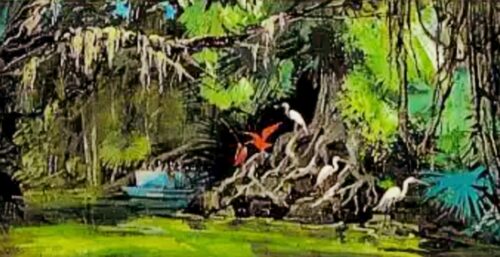
It’s possible–maybe even probable–that the plumbing still exists. Perhaps a battery of rusted sprinkler heads still lurk up there in the vinyl leaves above this throwback Epcot ride, ready to unleash a patter of stale brown water, trapped for years in the old pipes.
If that day ever comes, you will appreciate the boat roofs all the more. And it will be glorious. But for now, the only way to experience the zen-like quality of real rain on Living with the Land is to get lucky by riding during an actual Florida thunderstorm.





We lost the animatronic locusts because visitors kept stealing them and taking them home, like so many Batuu sporks. This is why we can’t have nice things.